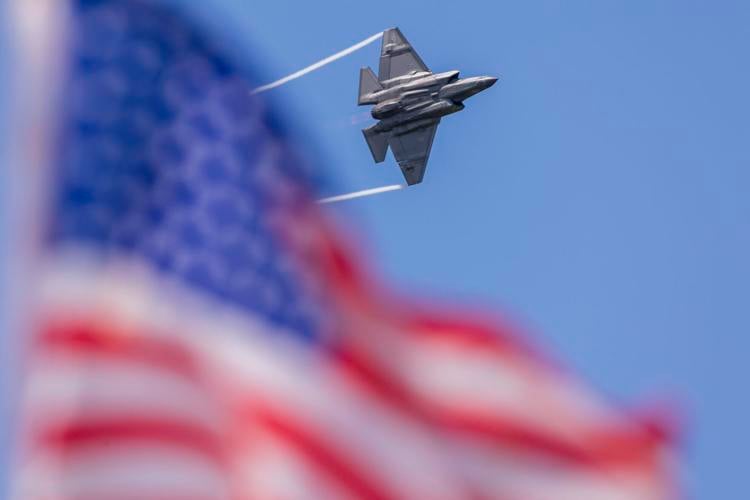"The Star Spangled Banner," our country's national anthem, has been around for a long time. It's a standard, something we've come to expect at sporting events, some political rallies, community gatherings and veterans programs.
It was controversial at first, but the song gained traction, gradually winning over the naysayers. Today, most Americans enjoy it, just as we respect the flag.
Francis Scott Key penned the four-stanza anthem in 1814 during the War of 1812. Key had a tune in mind: "To Anacreon in Heaven," a British drinking song. Some people didn't like that. Many thought it was too complicated for schoolchildren. The New York Times argued against adopting it as our own in a 1927 editorial, suggesting a song with "a fit of enthusiasm."
I'm an Eagle Scout. I went to public and private schools where the anthem was part of our programs. I've always stood with respect, took off my cap or hat and placed my right hand on my heart. I have plenty of enthusiasm.
I have friends who are displeased when people don't respect the anthem and do as I do, especially veterans. Other friends, for a variety of reasons, long ago stopped singing the anthem and saying the Pledge of Allegiance because they don't feel our nation has done enough to be fair to and include African Americans.
I don't believe most people intentionally disrespect the anthem or the pledge — unless they're making a point. Others never learned basic etiquette and protocol for important actions and symbols.
It usually stuns people — especially sports fans, military service members and veterans — that we're not supposed to clap at our national anthem's conclusion.
Don't believe me? Maybe you'll believe the legendary etiquette and manners maven, Miss Manners, who addressed that topic in a 2015 column.
"DEAR MISS MANNERS: I was taught in grade school by my music teacher that it is disrespectful to clap after the singing of “The Star-Spangled Banner.” I have not clapped after the national anthem in more than 30 years. Is that wrong?
Thanks, Miss Manners, for always telling us what we ought to do. We appreciate the lesson, even though some never learned it.
Among those of us who did, some have chosen to do otherwise.
Like many of you, I'm sure, I've been clapping. Regularly.
Especially when I hear certain people sing the anthem, which has been sung in many arrangements. Some are touching and bring tears to my eyes. Some are soaring, making my heart swell. A few even make me want to dance, wishing I had worn red, white and blue.
The grandest and most memorable are the performances millions of people have watched just before the NFL Super Bowl. Second only to the highly produced halftime shows, football fans and their I'm-here-for-the-snacks family and friends love to see what performers will do with the anthem.
There was Cher's version in 1999.
Wild child Lady Gaga showed she could be respectful, giving an emotional performance that hit some really high notes in 2016.
I loved the smooth rendition offered by Luther Vandross in 1997. The duo of the Queen of Soul Aretha Franklin and Louisiana's own Aaron Neville made me swell with pride when they sang the anthem with legendary Dr. John on the piano in Detroit in 2006.
My Queen Bee friends won't forgive me if I don't mention that the incredible Beyoncé sang the anthem when the big game was played in Houston in 2004.
The all-time greatest NFL Super Bowl national anthem was sung by Whitney Houston in 1991. If you missed it or can't remember it, do yourself a favor and pause now to check it out.
I cite these specific performances because if you look closely enough you'll see all kinds of fans in the stands ignoring Miss Manners' advice. They clapped after each performance. Some didn't stand and place their hands on their hearts.
There are many ways to show respect, and it's difficult to make someone else feel what you feel.
Giving others guidance and information may help, but they are no less American if they show sincere respect in their own way.






















